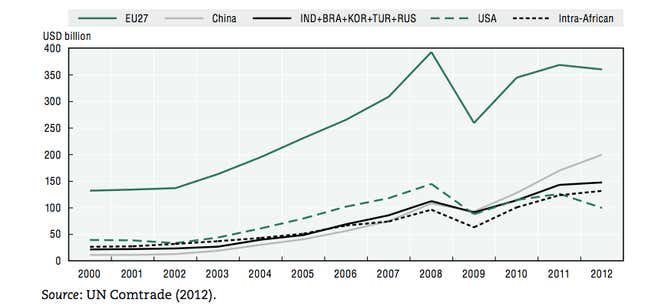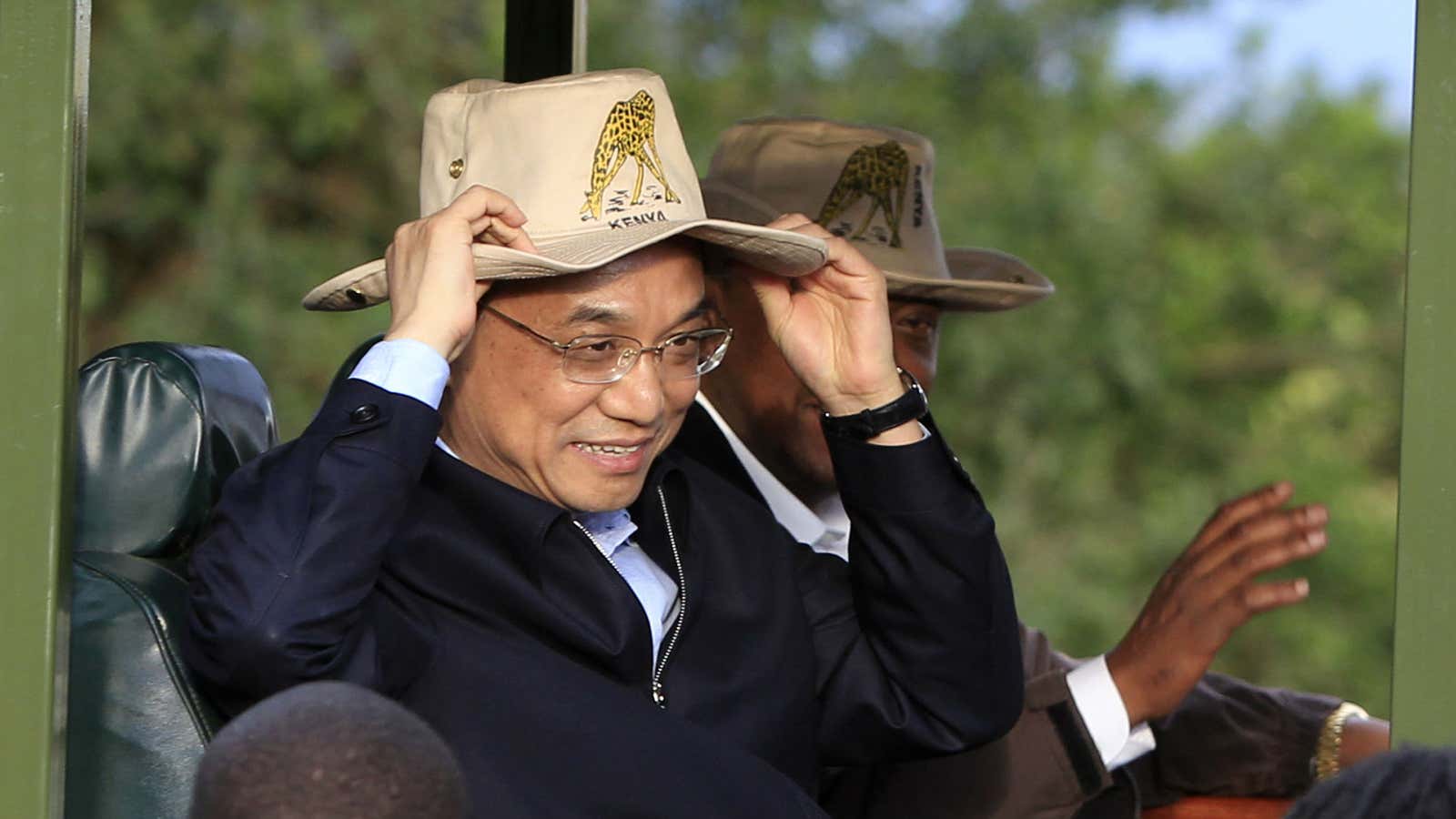Foreign direct investment (FDI) in Africa will hit an unprecedented $80 billion this year, according to a new report (pdf, p. 5) by the African Development Bank. A growing proportion of that is coming from China, which has the largest stock of FDI in Africa of any non-OECD country—about $27.7 billion, according to the report.
That’s alarming for those who argue that China’s investment in the region amounts to little more than “check book diplomacy” of buying alliances and access to resources. But as we’ve pointed out, there are signs that China’s role in Africa is changing. Most recently, the Financial Times reported that this week, Beijing and the African Development Bank, a major lender to the region, will announce a $2 billion investment vehicle (paywall) that will open contracts to the best bidder, instead of just to Chinese firms.
“If it’s true…this is a huge change and a very welcome one,” Deborah Brautigam, an expert in China-Africa relations at Johns Hopkins University, wrote on her blog. “I suspect that Chinese firms will still win the majority of contracts but what an excellent tactic by a maturing Chinese leadership to make them compete internationally for their wins.”
Chinese policy banks have have been criticized for awarding projects to Chinese companies who import their own labor to the region. Some African officials have complained about shoddy construction and projects that bring little benefit to the local economy. Beijing has also been criticized for not disclosing how much is given in development aid. Others have labeled China’s behavior in the region “neocolonialist.”
The $2 billion fund is small compared to the amount of total amount of money China has been pledging in the region, including $1 trillion in financing for infrastructure projects between now and 2025, funded by China’s state-owned Export-Import Bank. During premier Li Keqiang’s recent trip to the region, he pledged to increase China’s line of credit to African countries to a total of $30 billion.
Still, it’s a sign that Beijing—in response to criticism, as well as expanding trade between the China and the region—appears keen to switch tactics, a sentiment evident in the project’s name: the “Africa Growing Together Fund.”





